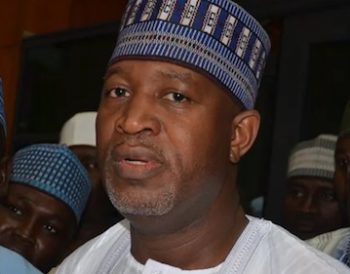
By Lakinbofa Goodluck
Users of Nigeria’s airports will attest to the abysmal state of virtually all the airports in the country. No one really needs to travel round the country visiting all the 22 federal airports to have a good knowledge of their deplorable shape. The busiest airports in the country are Lagos and Abuja, which serve as entry points to the two most significant cities in the country. The current condition of the two airports provides a fair idea of what obtains in other parts of the country. They definitely do not compare with the standards in other developed and developing countries. Being a first point of entry for foreigners visiting the country, airports aid in impression and perception management. The state of an airport largely determines the initial impression a foreigner makes about the country, and like they say, first impression matters a lot. Previous governments have attempted to remodel and sanitise the Nigerian airports, but to no success. In fact, virtually every Minister of Aviation from 1999 has been enmeshed in one scandal or the other relating to efforts at improving the nation’s airports. The most significant intervention at improving Nigerian airports was the concession arrangement between the federal government and Bi-Courtney, which has become a subject of litigation.
According to the Minister of State for Aviation, Hadi Sirika, the Murtala Mohammed Airport, for instance, which now handles about 8million travellers annually, was originally built for 200,000 travellers. The upsurge in the number travellers demands that the government upgrades the airport, but the Minister declared that the government does not have the financial resources to upgrade the facilities at the moment. In other words, government can no longer fund the airports, and paucity of funds to upgrade the facilities means they will remain an eyesore and even get worse by the day.
Thus, when the federal government confirmed last week that it was going to concession Murtala Muhammed Airport, Lagos and Nnamdi Azikiwe Airport, Abuja, it was received with mixed feelings. As expected, reactions that trailed the announcement reflected the varying perspectives on the issues at play. Some commentators believe it is another way for government officials to enrich themselves since one of them might end up winning the bid. In other words, arrangements of this nature usually do not go through the regular due process. Others believe that the concession might not last since a subsequent government can simply nullify existing arrangements for reasons that necessarily do not require cogency.
There is also a school of thought that questions the wisdom behind the move to concession the most viable airports in the country from where the Federal Aviation Authority of Nigeria, FAAN, derives funds to finance other airports in the country; more so, that the government has already conceded virtually all aspects of airport operations. On their part, workers under the umbrella of the National Union of Air Transport Employees (NUATE), the Air Transport Service Senior Staff Association (ATSSSAN) and affiliated labour unions have decided to embark on strike action if the government eventually concessions the airport. Their agitation is predicated on the attendant job loss that might come with the concession. Some other analysts believe government officials have deliberately frustrated the efficiency of the airports in order to have a cogent reason to sell them off to their cronies.
Truly, all the diverse perspectives are valid and should be given consideration. However, the point remains that Nigerian airports are poorly managed; they are not befitting of the country; their current condition is a super insult on our collective national pride. The focus should be on how to make the airports more viable and truly become a national pride. Every concern about the concession can be addressed by vigilance and dedication from stakeholders.
Evidently, Public Private Partnership is an effective model for efficient management of government institutions. Until the situation changes, I personally believe it is difficult to run a government entity as a business organisation efficiently in Nigeria. This is primarily due to the existing bureaucratic bottlenecks that aid corruption and inefficiency. There are several instances of successful PPP models both within and outside the country that we can borrow from. The most important thing is to ensure the absolute integrity of the process.
Considering the current situation and the inability of successive governments to implement an improvement strategy, there might be no other options than to concession the airports in order to ensure a holistic enhancement in operations and overall outlook. However, as the government considers this option, it is necessary for the process to be completely transparent and properly institutionalised to ensure its continuity. The Minister has promised to engineer a transparent process that will fully involve relevant stakeholders, especially workers. Adherence to the spirit of this assurance is crucial to ensuring the success of this process. Sen. Hadi Sirika has shown that he can be trusted with the manner he handled the Abuja airport runway upgrade. We hope he will bring the same quality to bear on this new endeavour.
Copyright Ships & Ports Ltd. Permission to use quotations from this article is granted subject to appropriate credit given to www.shipsandports.com.ng as the source.
